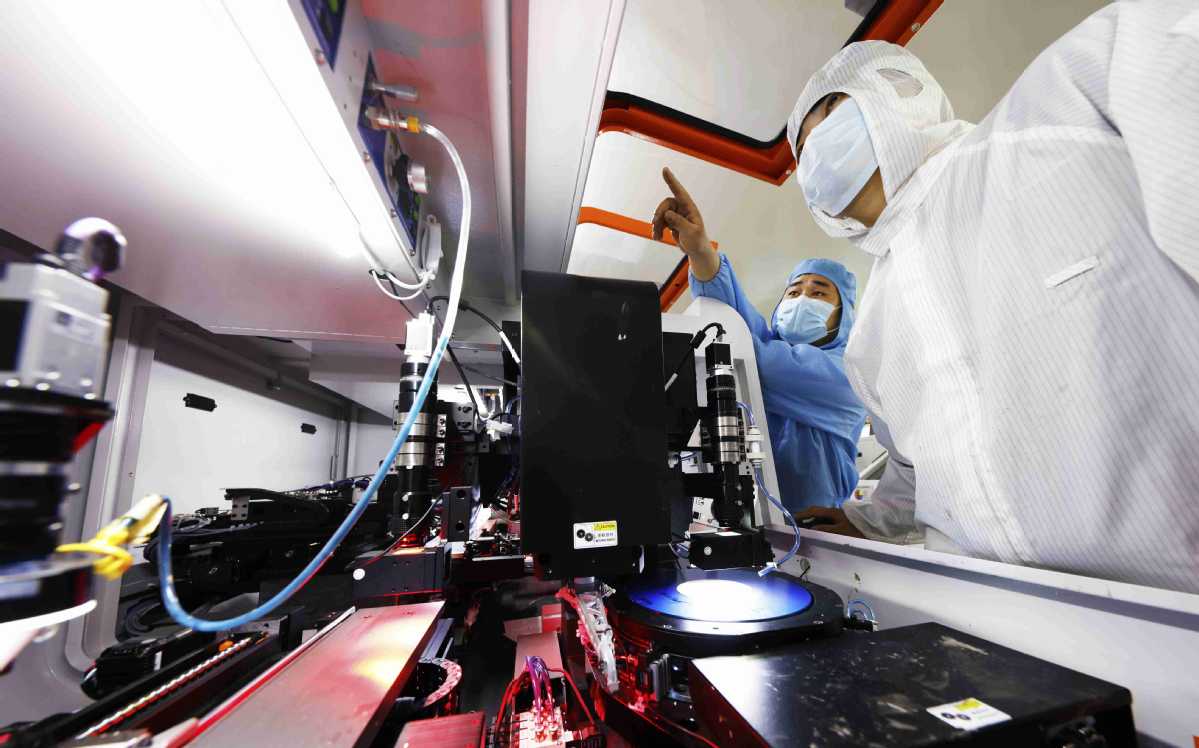Home / Business / Industries
Innovation key to boosting high-quality growth
By MA SI | chinadaily.com.cn | Updated: 2023-04-17 22:51
Workers operate a microchip production line at a factory in Sihong, Jiangsu province. XU CHANGLIANG/FOR CHINA DAILY
China’s latest call for innovation in key technologies and crucial components will motivate companies to achieve breakthroughs in emerging sectors and buoy the country’s high-quality economic development amid new opportunities and challenges, experts and company executives said.
The comments came after Premier Li Qiang highlighted the need for businesses to boost their confidence and forge new growth drivers and strengths during a fact-finding trip to unicorn companies — startups valued at $1 billion or more — in Beijing last week.
Luo Zhongwei, a researcher at the Institute of Industrial Economics at the Chinese Academy of Social Sciences, said Premier Li’s visit to unicorn companies highlights China’s support for startups and innovation in commercial aerospace, energy storage and auto chips — three tech frontiers of growing importance.
“These unicorns are fast-growing startups driven by sophisticated technologies. It is an important signal that China wants to cultivate more such innovative startups that can translate cutting-edge technologies into competitive commercial products,” Luo said.
According to Luo, high-tech startups are also crucial for China to achieve breakthroughs when facing technological bottlenecks, for they are quick to respond to the latest tech trends and good at solving problems in key areas.
China is one of the top two countries in nurturing unicorns. The country nurtured 74 new unicorns last year, putting their total number at 368, second only to the United States, data from Forbes China shows.
Pan Jiaofeng, president of the Institutes of Science and Development at the Chinese Academy of Sciences, said that innovation will help China — the world’s largest manufacturer — secure its industrial chains amid challenges, which will, in turn, serve the world economy and help stabilize global industrial chains.
Pan Helin, co-director of the Digital Economy and Financial Innovation Research Center at Zhejiang University’s International Business School, said the premier’s visit to startups, including private satellite maker GalaxySpace, shows that advanced manufacturing is high on the central government’s agenda.
“China aims to achieve high-quality economic growth through the marriage of technological innovation and advanced manufacturing. More efforts will be made to strengthen investment in areas such as talent cultivation and research and development,” Pan said.
The country plans to develop a high-efficient global space infrastructure system in communication, navigation, and remote sensing, and build launch sites for commercial spaceflights by 2035.
Huatai Securities has forecast in a research note that China’s commercial aerospace industry will become a darling of investors in the coming years. As of now, the country has more than 200 registered commercial aerospace-related companies.
“Chinese companies have become very competitive, not just because of cost but also because of quality and innovation. We see quite a lot of Chinese companies being top producers of patents and really good products, and we see them all over the world,” said Hans-Paul Burkner, global chair emeritus of Boston Consulting Group.
Yu Kai, CEO of Horizon Robotics, a startup devoted to developing computing solutions for intelligent vehicles that Premier Li visited, said, “China is now the world’s most vibrant market for smart electric vehicles, and the most competitive arena for global tech companies that target intelligent driving. … We believe China will also become a major source of innovation for the industry.”






























